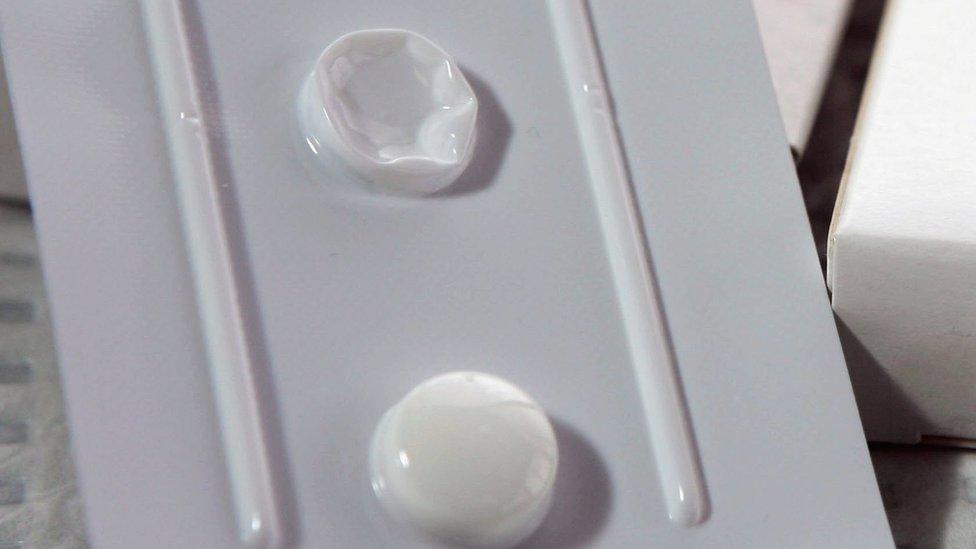Abortion: Irish women share very different stories
- Published
In the Republic of Ireland, there is no issue more sensitive. Abortions are only permitted when the mother's life is in danger. Two women share their very personal stories.
Amy's story
Amy Walsh, from Dublin, believes her traumatic experience shows why the Republic of Ireland needs to changes its abortion laws.
Two years ago, the baby she was carrying was diagnosed with a rare and fatal condition called Triploidy.
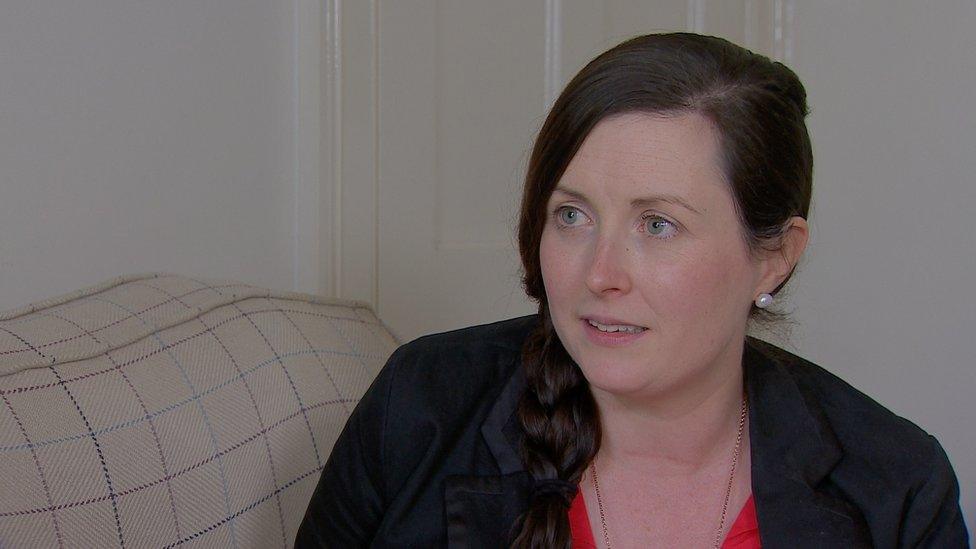
Amy Walsh's baby was diagnosed with a rare and fatal condition during her pregnancy
Initially, she did not want to make the journey, which hundreds of Irish women make every year, across the Irish Sea, to have a termination in England.
"I was scared," Amy says. "I didn't want to leave my care providers - at this point I had developed a good relationship with them."
At 24 weeks, she was told her blood pressure was going up and she was at risk of developing pre-eclampsia.
Amy and her husband decided to travel to Liverpool for a termination.
She recalls growing up, and hearing of people "getting the boat" - in other words, going to England for an abortion.
"Here I was with a wanted pregnancy and a wanted baby, and we were getting the boat to England. I found that very hard to reconcile in my head."
They travelled on a car ferry because, like some other families, they wanted to bring their baby's remains home for a funeral.
'Referendum'
But after taking advice from a midwife, they decided that doing so would be too distressing.
Their baby was cremated and her ashes delivered by courier a number of weeks later.
Amy, who was supported by a group called Terminations for Medical Reasons, describes her pregnancy as "torture".
She said she "couldn't work, couldn't go out, couldn't function".
"We need to provide our women with the healthcare they need, and in some instances, that is abortion," she said.
Abortion law is rarely far from the headlines, but it's all the more prominent now.
This weekend, an advisory body to the Irish government will discuss the topic.
The Citizens' Assembly - made up of 99 people and a chairperson - could recommend a referendum.
The assembly is considering a number of issues around the Irish constitution - including the document's eighth amendment.
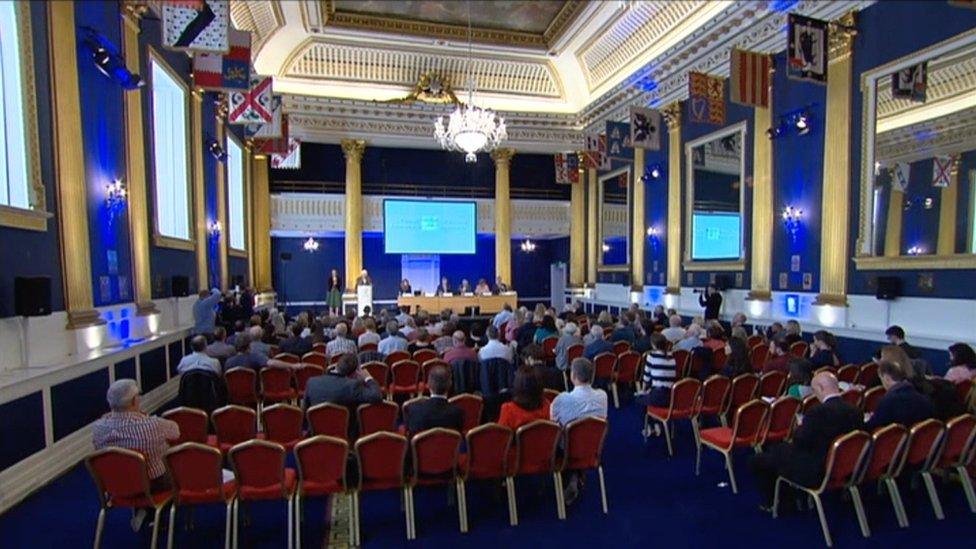
The Citizens' Assembly could recommend a referendum on the issue of abortion
It essentially means an unborn child's right to life is equal to its mother.
"Repeal the eighth" has become a key slogan for the pro-choice movement.
As a public vote is required before any change to the constitution, removing the eighth would require a nationwide poll on the question.
The Citizens' Assembly is not expected to issue any recommendations until next year.
Sinead's story
Sinead McBreen, from County Cavan, believes the eighth amendment should stay.
She has a two-year-old daughter, Grace, who has Down's Syndrome.
"I think we need to protect children like Grace, who have severe disabilities - and the eighth amendment provides protection," she says.
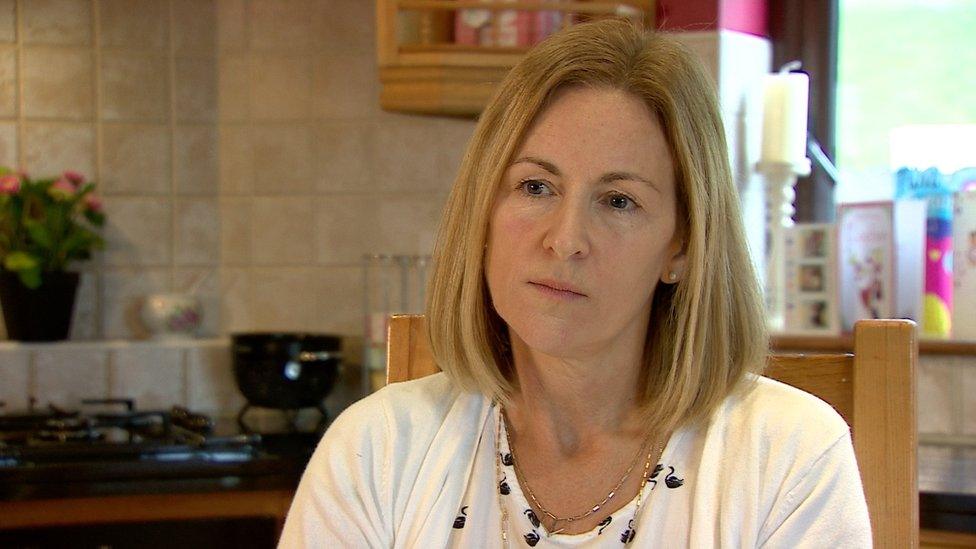
Sinead McBreen, from County Cavan, believes the current law on abortion should remain
Sinead said that when Grace was diagnosed with Down's Syndrome and two other conditions in the womb, she was not expected to survive to birth.
"We were told that the only care that could be provided was to check for a heartbeat every week," she said.
She decided not to travel for a termination.
"For me, the natural choice seemed to be to let nature take its course," she said.
Sinead is concerned that if abortion law is loosened to allow terminations in cases where a baby has a fatal diagnosis, it will inevitably be relaxed further.
"How can you define what a life-limiting condition is?" she asked.
The ethical questions in this most emotive of subjects are very complex.
But more people are going public with personal perspectives - fuelling a debate on which politicians must ultimately make a judgement.
- Published8 April 2016
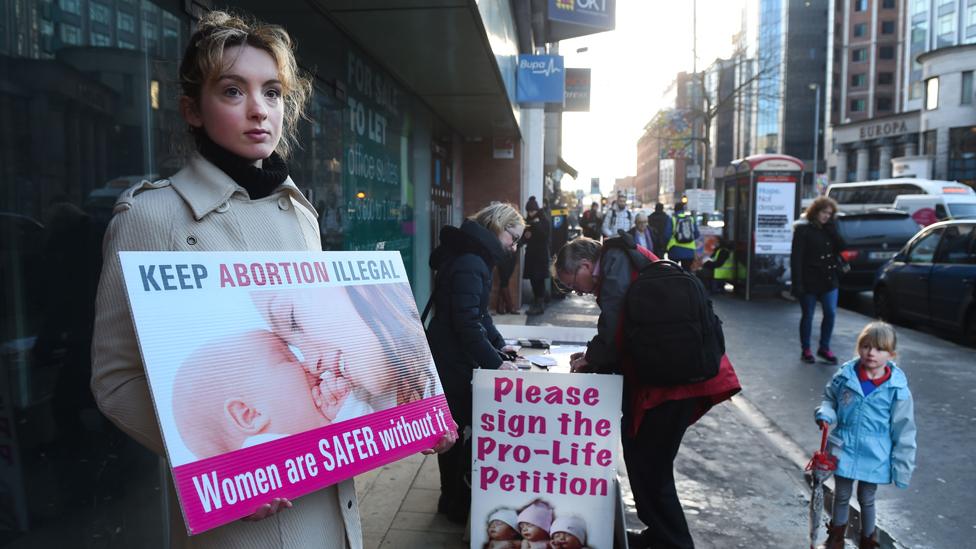
- Published18 October 2016
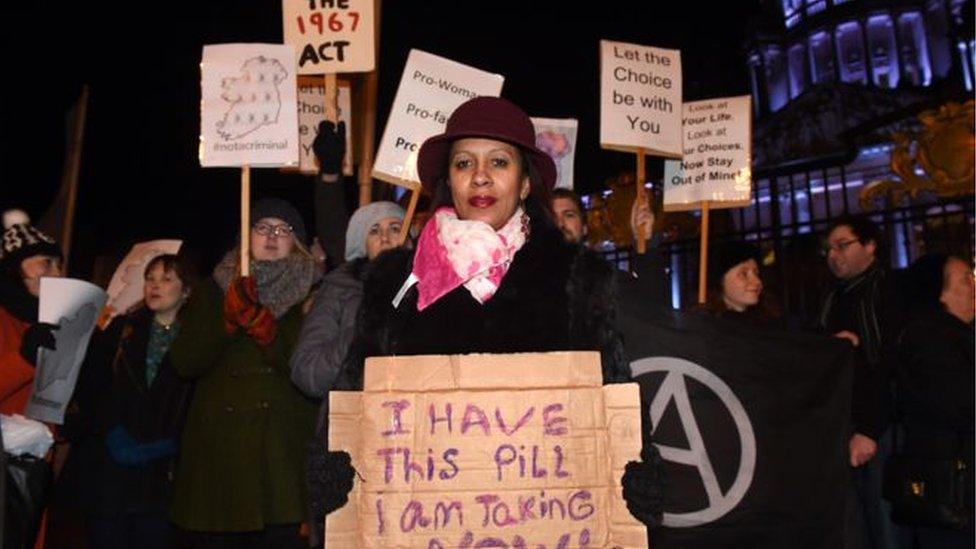
- Published27 October 2016
